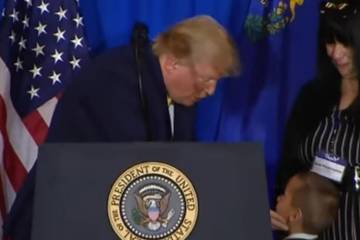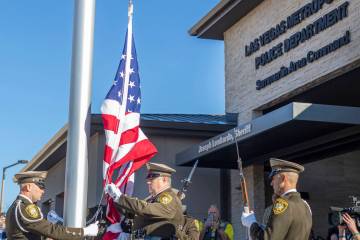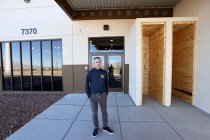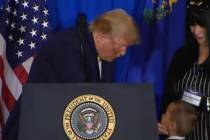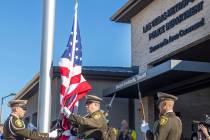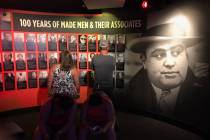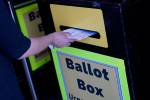Lingering election signs can cost candidates in Summerlin
There was a time when political signs urging folks to vote for certain candidates not only dotted the vacant landscapes of Las Vegas and sectors of unincorporated Clark County, but in some cases, they overwhelmed almost every foot of empty space.
The sheer glut of one political sign followed by another often became intrusive — and in some cases downright repulsive — to passersby, leaving an unanticipated chill to the expectations of the very candidates they pandered.
But changes for the better have occurred over the years, transformations that have gradually minimized the unsightliness of political candidate signs of all stripes and sizes. One of those changes materialized as a result of population growth throughout Southern Nevada, which in turn brought about new housing and the expansion of existing developments, thus leaving a paucity of vacant properties available for political signs.
And in many cases, where today there still is vacant land, owners of those properties have erected anchor fences or other barriers, which serve to keep away the signs. For example, a vacant tract along Alta Drive in Summerlin, which once served as a favorite site for political signs, has been closed off by fencing. But nearby, another favorite tract for candidates, along Hualapai Way, remains highly vulnerable.
In fact, it was only a relatively short time ago — prior to a rash of major development — when much more of Summerlin was vacant. Empty lands served the needs of candidates to the point that their political signs, just before election days, were so plentiful, so dominant, and so closely erected that they resembled a long line of gigantic dominoes.
While that’s no longer the case, recently two readers of this column, only days apart, coincidentally raised similar inquiries questioning whether there are laws that pertain to the removal of such signs, and if so, their effectiveness. More to the point, both inquiries also questioned how long these remnants of an election are permitted to linger well after the votes have been counted and who is responsible for their removal.
The city of Las Vegas deserves the most credit for adding a detailed section within its zoning regulations, known as the Unified Development Code. The section specifically addresses the question of political signs in residential and commercial areas.
The very extensive zoning code was established in 2011. It applies to “the development of all land, public or private, within the corporate limits of the city…”
The code, referred to as Title 19 under the auspices of the city’s Department of Planning, sets standards for the maximum size of political signs. Under the heading of “political signs,” it specifies that such signs “shall be placed only on private property” and shall “not interfere with … traffic control signs or obstruct the vision of traffic.”
It also specifies that “political signs shall not be placed on any public property or right-of-way, or posted on any utility pole or device.”
As for the removal of such signs, Title 19 is very clear: “All political signs that relate to an election shall be removed within 15 days after the election to which they pertain. Signs supporting a candidate who loses a primary election or wins a nonpartisan race in a primary election with more than 50 percent of the vote shall be removed within 15 days after the primary election.”
The code adds that “the person or persons who are responsible for the erection, placement or distribution of any political sign, including the person whose candidacy the sign supports, are jointly and severally responsible for the removal of the political sign and the cost thereof.”
If the sign is not removed within 15 days, the city can remove it after five days of written notice to whoever is responsible for the sign and charge all costs to the candidate. A spokesperson for the city noted that letters also are sent to all candidates a few days before the election reminding them that they must comply with removal of their signs within 15 days after the election.
A similar zoning code for unincorporated areas of Clark County, referred to as Title 30 and updated in 2013, provides general standards for the regulation of signs on properties, although it does not specify political signs.
Herb Jaffe was an op-ed columnist and investigative reporter for most of his 39 years at the Star-Ledger of Newark, N.J. His most recent novel, “Double Play,” is now available. Contact him at hjaffe@cox.net.





